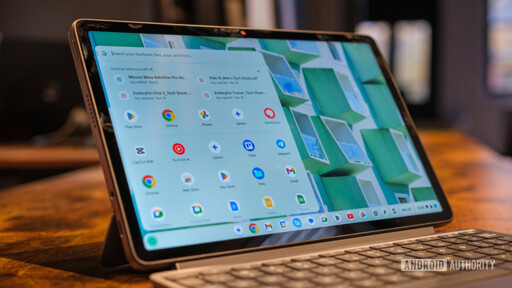Sameer Samat, president of Android ecosystem at Google, asked a TechRadar journalist why they were using an Apple Watch, iPhone, and MacBook:
I asked because we’re going to be combining Chrome OS and Android into a single platform, and I am very interested in how people are using their laptops these days and what they’re getting done.



A decade ago this would have been exciting news for mobile computing.
Enough has changed that all I can think is, uuugh.
Two decades ago people would remember when M$ decided to do something very similar on the desktop. Nothing has changed.
I’ll thank you not to refer to 2012 as “two decades ago.” Felt like I drank from the wrong grail, before double-checking when Windows 8 came out.
Who’s talking about Windows 8 or 2012? I said 2 decades and meant it. I wasn’t talking about the same time frame, just pointing out the history we are repeating. I was talking about “United States vs Microsoft Corp.” (2001). That would have been regarding Windows 98 and Windows XP.
Internet ExplorerEdge is still an integral and unremovable component of Microsoft’s operating systems to this day and I guess everyone really has forgotten about Netscape Navigator.Yeah it’s almost like we were talking about something else entirely.
Why bother commenting at all if you’re going to be proudly ignorant AND a jerk?
Why did you obliquely reference a different company doing a completely different thing? Microsoft did do something very similar on desktop - making Windows 8 tablet-centric. Nothing in XP or especially 98 has anything to do with mobile computing.
It’s not a completely different thing. They were both trying to fully integrate the operating system and the web browser into one monolithic and inescapable thing: Windows XP + Internet Explorer to squash competition on the desktop; Linux + Chrome to squash competition on laptops; Android + Chrome OS to squash competition in the mobile space. The money to be made on operating systems is trivial in the consumer space compared to the power of control over platforms (like web browsers) that deliver advertisements and harvest data from comsumers. M$ saw the writing on the wall way back then in their fight with Netscape Navigator. The more things change, the more they stay the same.
I feel like I’m talking to an AI chatbot completely unable to reason abstractly or consider the full context of the conversation.
Also, it will be a license nightmare. As far as I know, Chrome OS is proprietary and actual Android has proper open source license.
Parts of Chrome OS are available, parts aren’t. Parts of Android are available, parts aren’t. Neither are really Open Source, but both have Open Source parts.
Same with MacOS and iOS. They’re doing the same shift Apple has done over the last 25 years. Build on open-source, and slowly pivot to closed-source binaries. The perception of openness lags for a very long time until people finally realize it has just become more proprietary limited crap.
Not really as there is no Apple equivalent to AOSP
It’s only proprietary in much the same way as Android. That’s why there are forks like FydeOS.
Exactly my feelings.